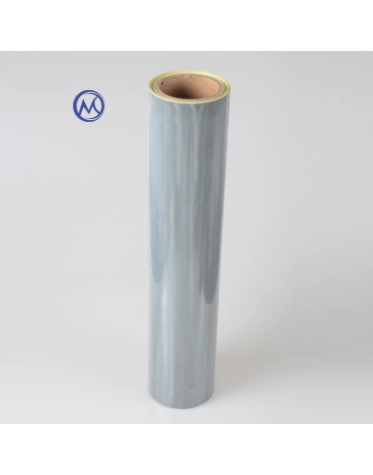How to Prevent Scratches on Reflective Film
Release time: 2025-08-12
Reflective film is a key player in road signs, traffic cones, and other safety markings.
Its microprism or glass bead surface gives it excellent visibility — but it can also be sensitive to scratches if not handled properly.
To keep your road signs reflective film looking great and working well, it’s important to know why scratches happen and how to prevent them.
1、Surface Structure
Most reflective films use glass bead or microprism technology.
These designs boost reflectivity, but the top layer is thin and hard, with minimal extra protection, so friction can leave visible marks.
2、Material Matters
Reflective films are usually made from PVC, PET, or PMMA:
PVC is softer and scratches more easily.
PET is a little tougher, but not as strong as hardened PMMA.
High-brightness or high-intensity reflective films have a thinner top layer, making them more vulnerable to sharp or rough contact.
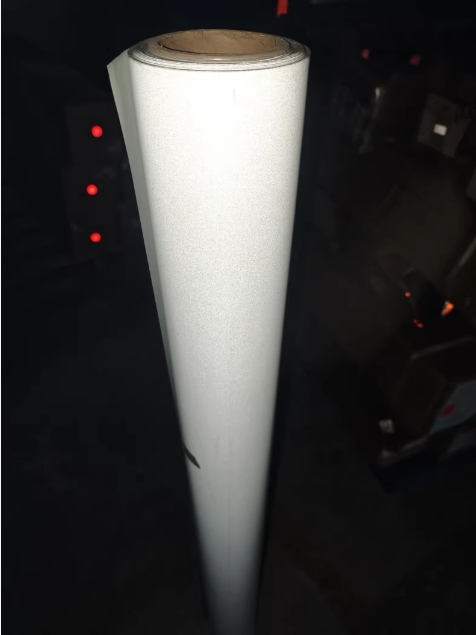
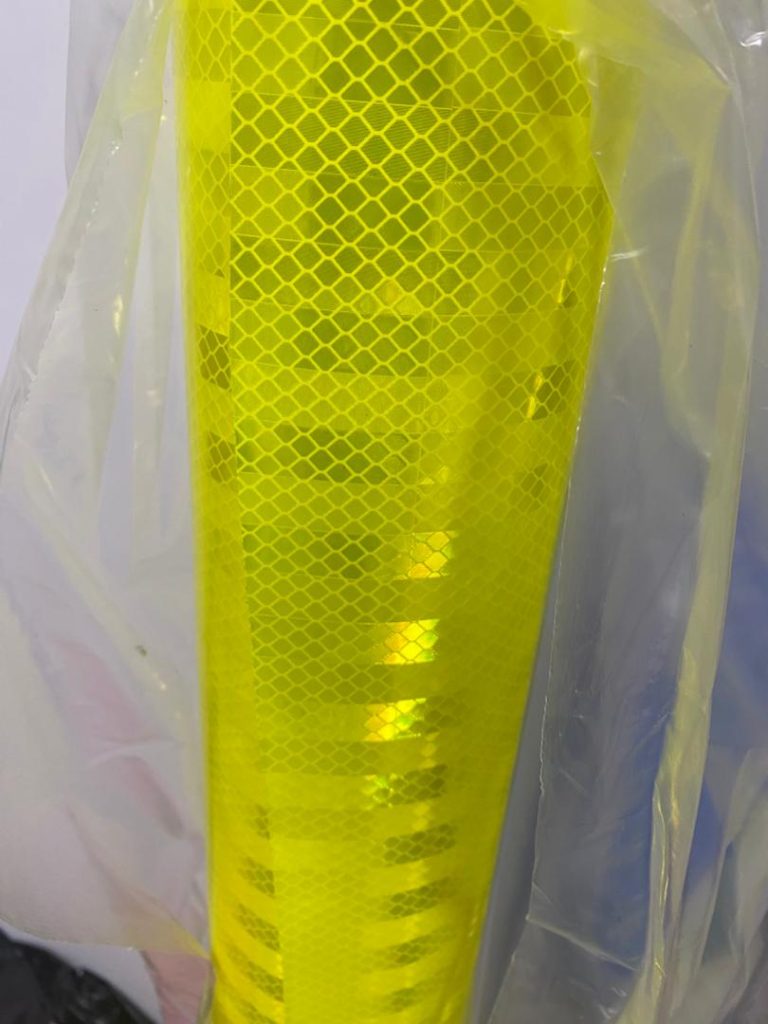
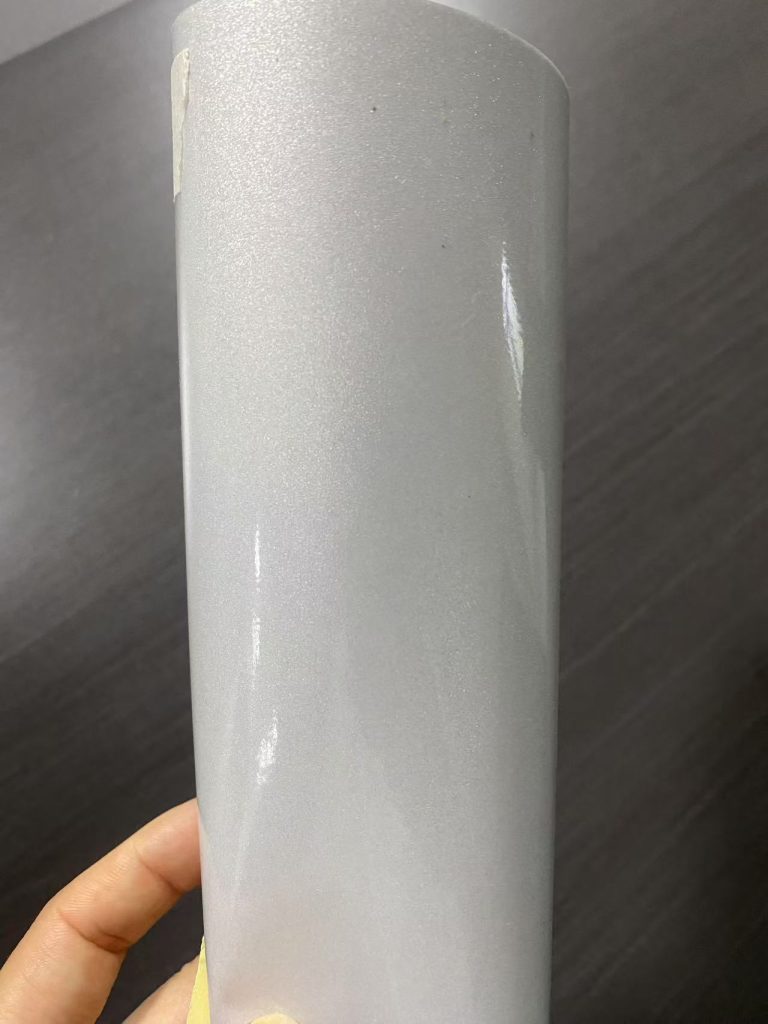
3、During Production
Dust or burrs on blades, rollers, or equipment can scratch the surface during slitting, laminating, or cutting.
Dirty machines during printing, transfer, or hot-pressing can also cause damage.
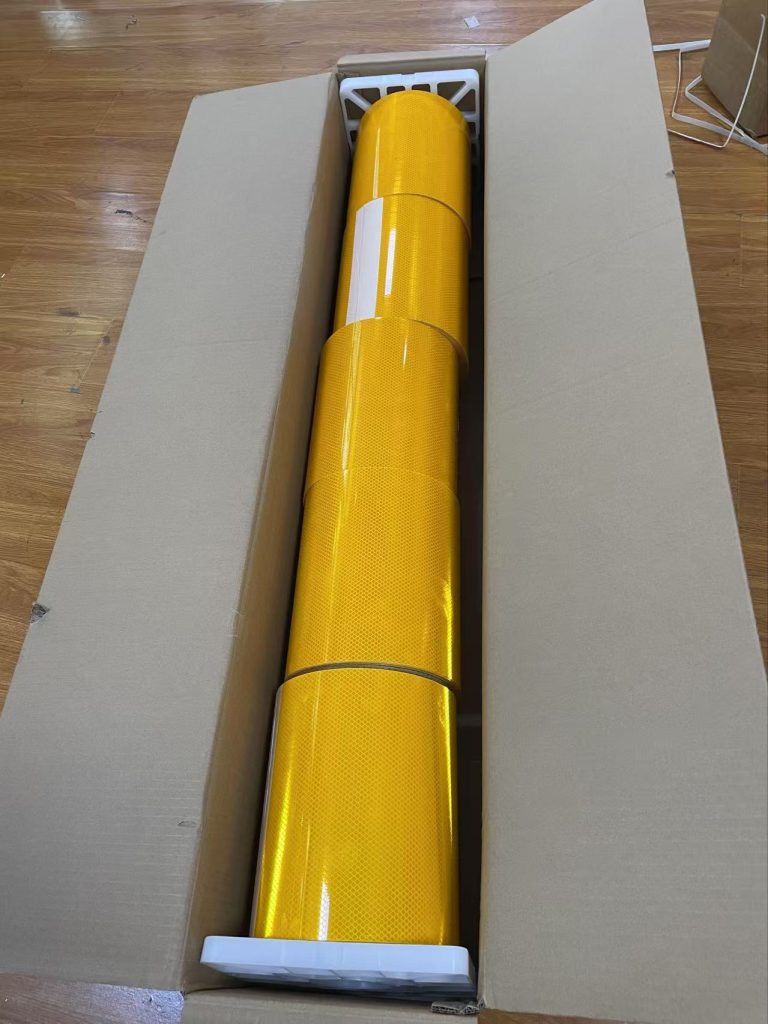
4、Packaging & Shipping
Without protective paper, liners, or foam, rolls can rub together and create fine scratches.
Rough handling, cartons shifting, or heavy pressure during transport can make the damage worse.
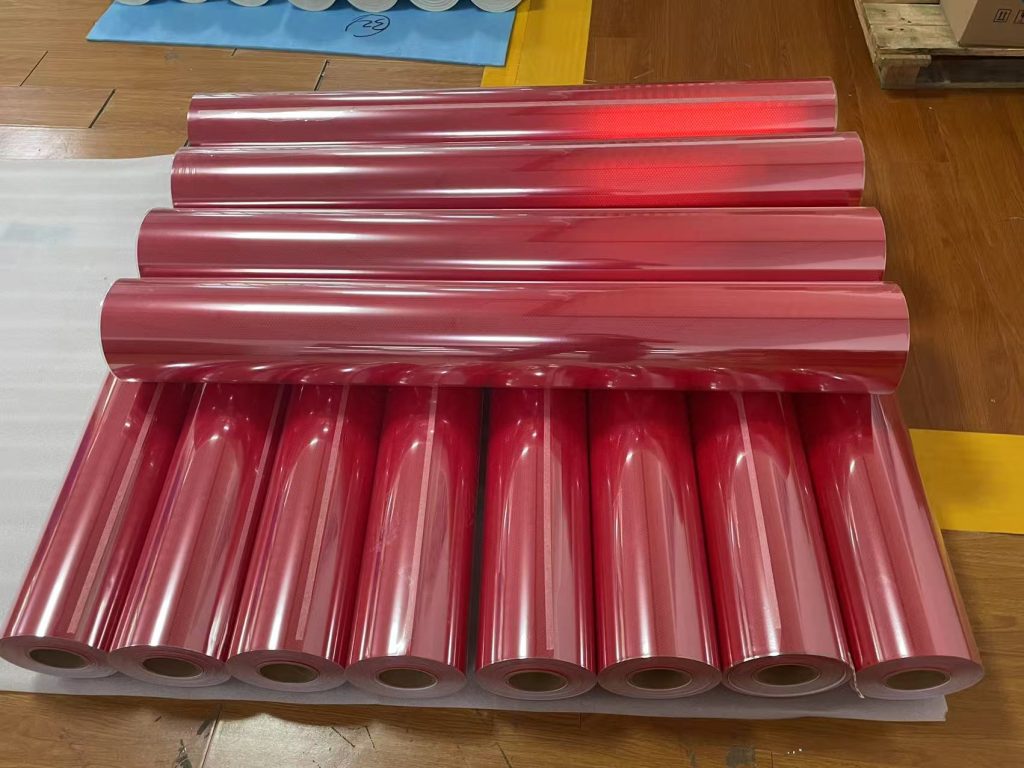
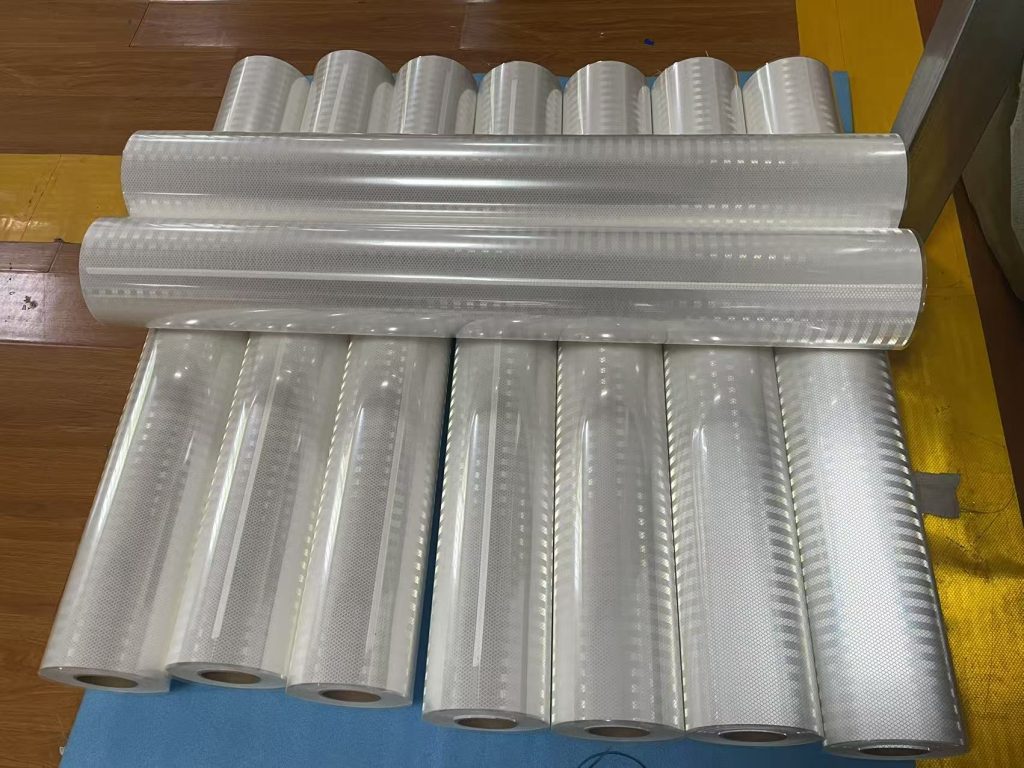
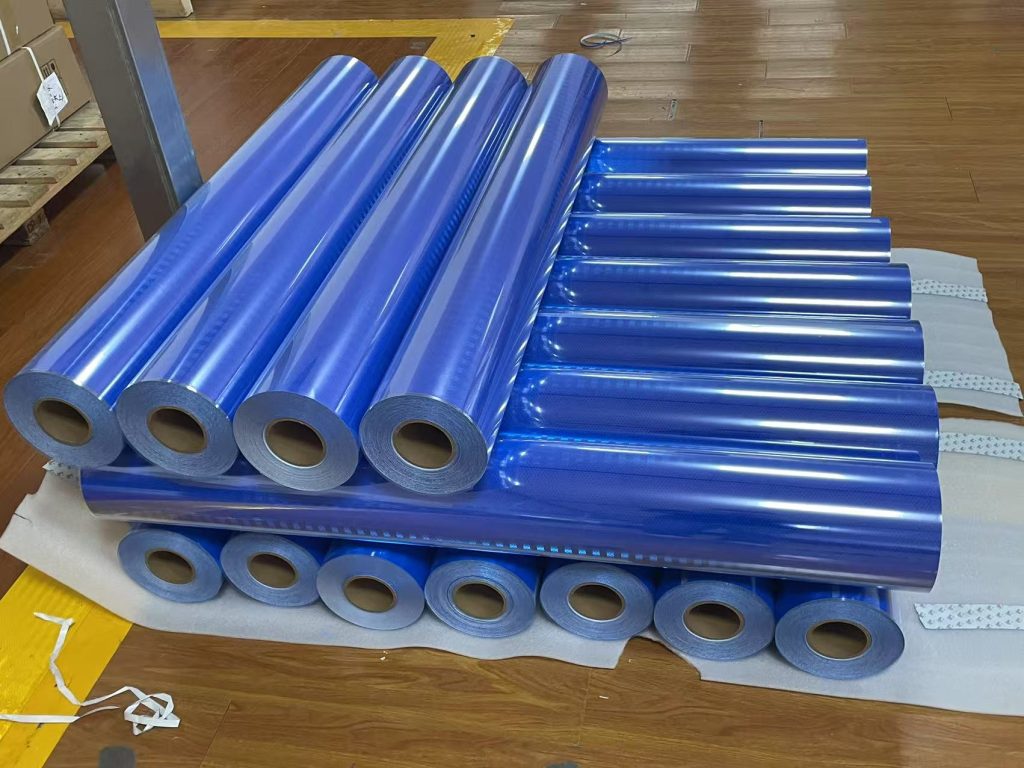
5、Storage & Use
Dusty, humid, or hot environments can speed up wear and tear.
Stacking heavy objects on top or letting the surface touch rough materials can leave marks. Quick Tips to Avoid Scratches
In production: Choose films with a hardened coating or PMMA for better scratch resistance.
In packaging: Always separate rolls with protective liners and secure them for transport.
In application: Handle gently and keep tools clean.
In storage: Keep in a clean, dry place away from sunlight and heavy loads.
Extra Tip: For bulk production, scratches can usually be kept under control. But even small samples need proper care — cut them fresh and seal them in plastic to keep them in perfect condition.

